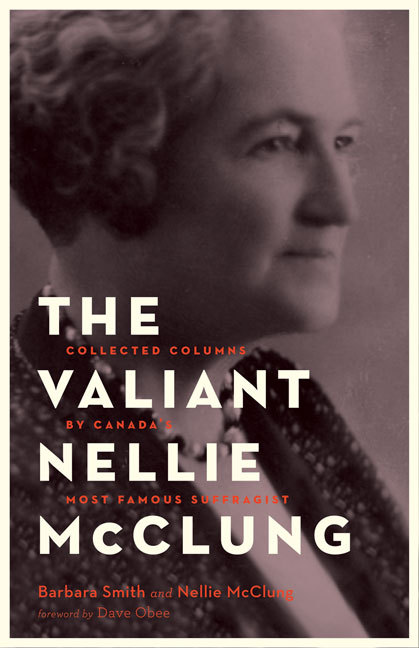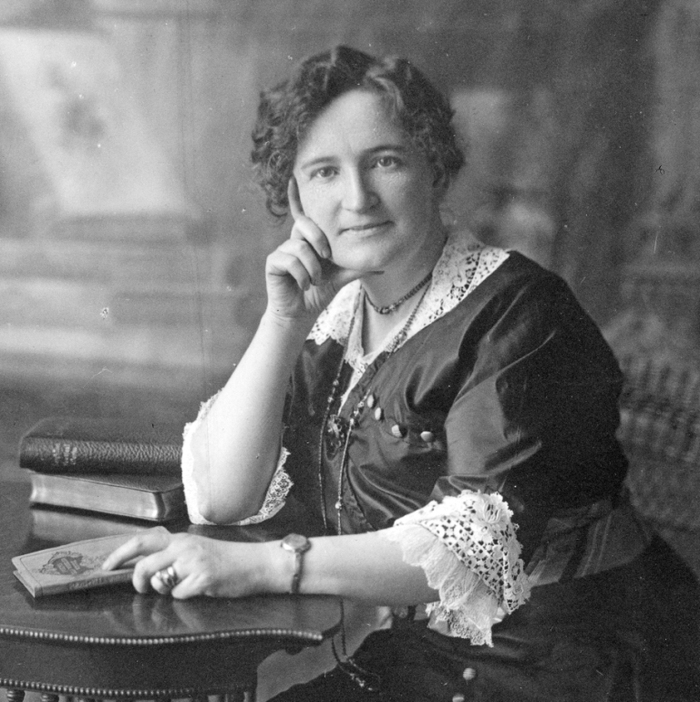
Although her name today is synonymous with the women’s suffrage movement in Canada, Nellie McClung’s long and varied career covered several fields—from social activist to elected politician, from novelist to journalist. McClung was instrumental in Canadian women gaining the right to vote before their British and American counterparts—2016 marks the one-hundred-year anniversary of women’s suffrage in Manitoba, Alberta, and Saskatchewan—and in women being recognized as persons eligible to sit in the Senate. McClung was a household name by the time she was elected to the Legislative Assembly of Alberta in 1921, a post she held for five years. When she settled on Vancouver Island in 1932, McClung was a highly esteemed public figure who had not only changed Canada’s political landscape and influenced women’s rights worldwide but had also raised five children and written a dozen best-selling books. From her beloved Island home, Lantern Lane, McClung continued to speak out against social injustice and inequality. In the late 1930s, she began to write a syndicated weekly newspaper column that served as social commentary for the years leading up to World War II. The Valiant Nellie McClung highlights a selection of those columns—covering themes as grave as war, as fundamental as the strength of the family unit, and as whimsical as the pleasure of gardening—and offers a unique reflection of our country’s history and an uncanny resonance today.
Authors

Nellie McClung, born Nellie Letitia Mooney (20 October 1873 – 1 September 1951), was a Canadian feminist, politician, and social activist. She was a part of the social and moral reform movements prevalent in Western Canada in the early 1900s. In 1927, McClung and four other women: Henrietta Muir Edwards, Emily Murphy, Louise McKinney and Irene Parlby, who together came to be known as "The Famous Five" (also called "The Valiant Five")[citation needed], launched the "Persons Case," contending that women could be "qualified persons" eligible to sit in the Senate. The Supreme Court of Canada ruled that current law did not recognize them as such. However, the case was won upon appeal to the Judicial Committee of the British Privy Council—the court of last resort for Canada at that time. She published her first novel Sowing Seeds in Danny in 1908. A national bestseller, it was succeeded by short stories and articles in several Canadian and American magazines.

Barbara Smith was born and raised in Toronto and lived most of her life in Edmonton. She settled in the Victoria area in 2006 with her husband, Bob. They have two daughters and two grandsons. Barbara has always collected folklore stories. Following her job on the Edmonton school board, she has been a full-time writer since 1988. Her work is inspired by a love of mystery, combined with her lifelong interest in social history. She has published over thirty books, the majority regional true ghost stories. They include: Ghost Stories Of Manitoba, Campfire Stories Of Western Canada, Ghost Stories Of Alberta, Ghost Stories And Mysterious Creatures Of British Columbia, Ghost Stories Of The Rocky Mountains, and Canadian Ghost Stories. Barbara was featured on the Discovery Channel's "Hunt For the Mad Trapper". She continues to publish, give readings, and interviews. Canadian Ghost Stories came out in November 2018. http://www.superstitioustimes.com/can...